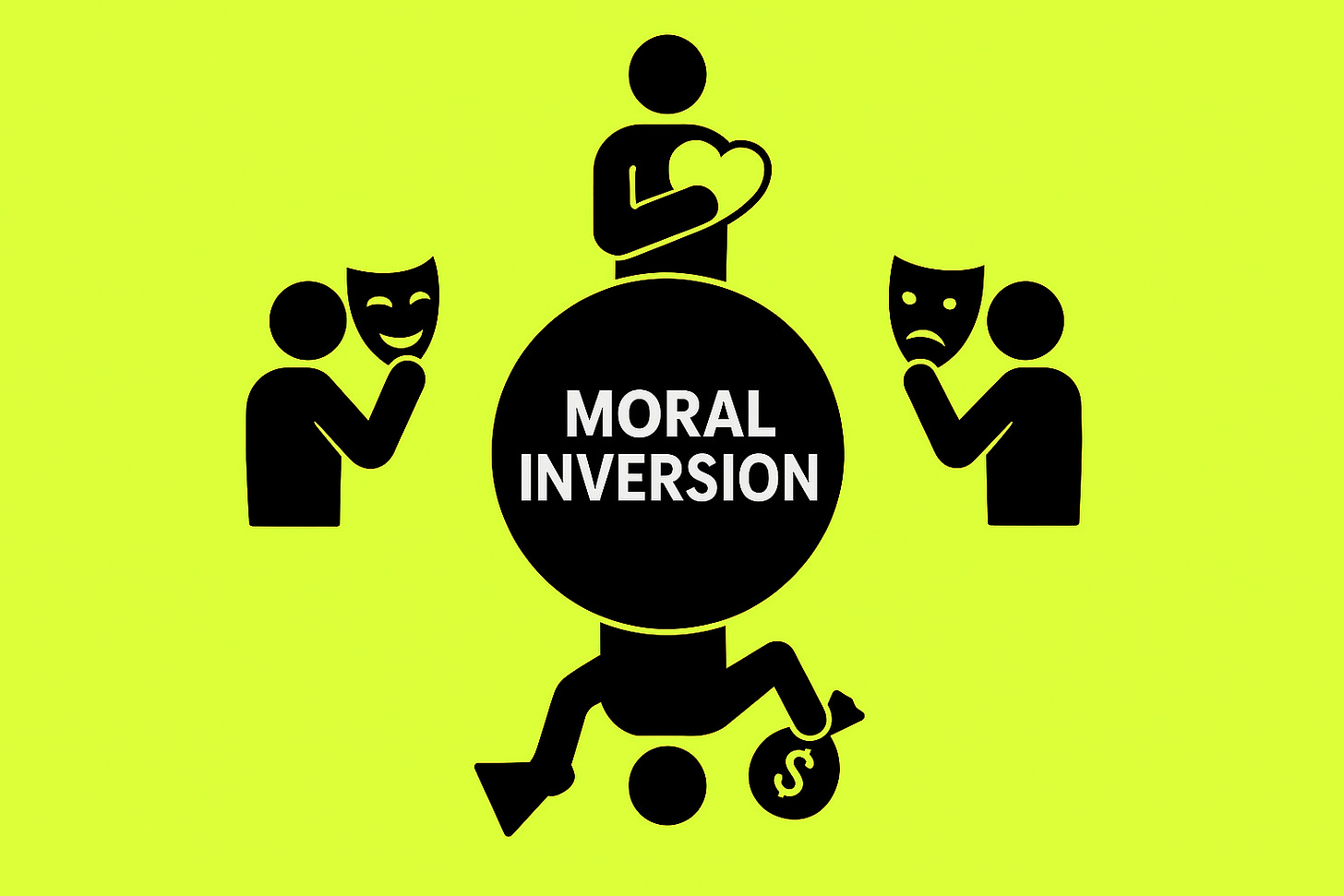The Moral Inversion of Progressive City Politics
When words stop meaning anything, cities stop working
Politics in a blue city are strange because struggles for power don’t unfold through policy, but through vibes, and by extension, language. Factions seeking narrative control during elections use buzzwords to convince citizens that they are progressive. “Preservation,” “affordability,” “equity,” and “gentrification” all once meant something. Now they are worn smooth from misuse.
Because blue cities are also often college towns, this problem with words extends beyond City Hall. The closer you live to a university, the more likely you are to encounter people who feel that words are life and that debate itself is existential. Near universities, city politics become rife with performative certainty, moral signaling, and the conflation of words with action. All this forms the scaffolding for moral inversion (see last week’s post), in which the language of virtue is intentionally used to disguise and promote immoral or harmful acts.
In local politics, this can manifest in a multitude of petty ways, such as one person attempting to promote themselves and their cause by defaming another—a zero-sum game. But those same habits of inversion don’t stay personal for long. Once moral language is corrupted, it scales: bad actors translate their distortions into policy. In land use, those distortions become blueprints.
When Land Use Words Mean Their Opposite
Consider what moral inversion looks like applied to our housing debates:
Those who build urban housing are blamed for causing sprawl.
Small developers who create local projects with local tenants are often portrayed as corporatists, soulless, extractive, and Wall Street-based.




